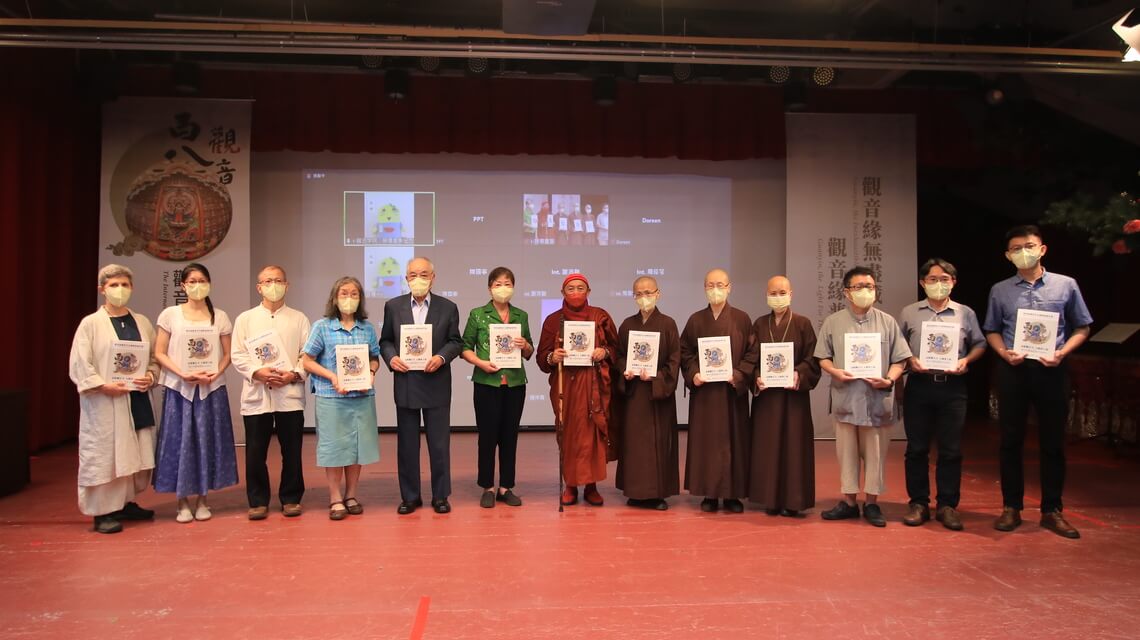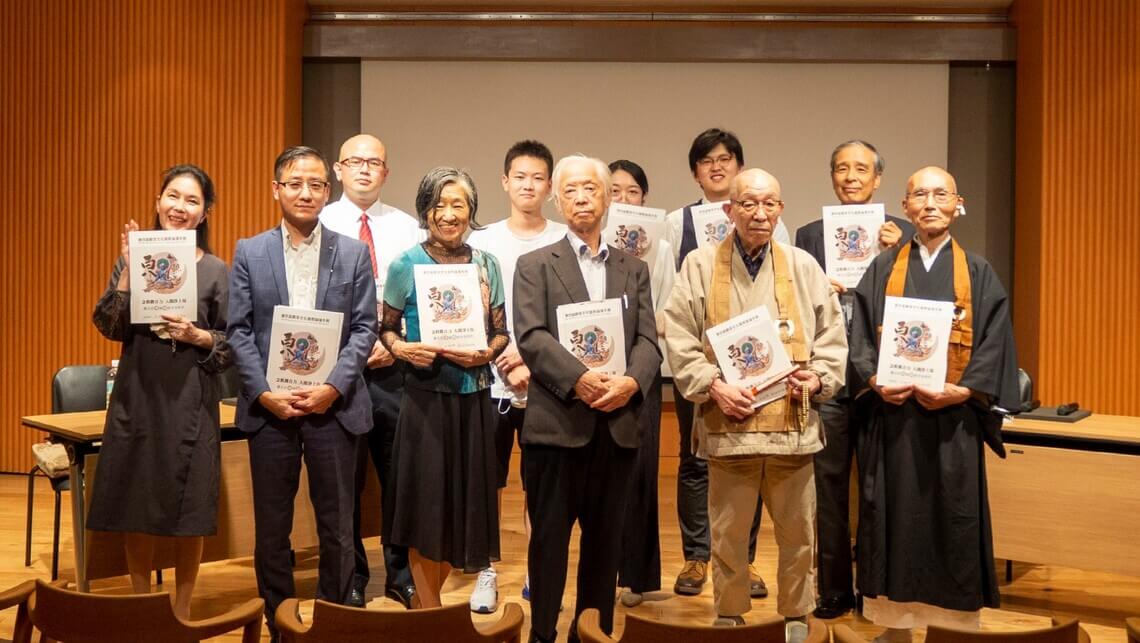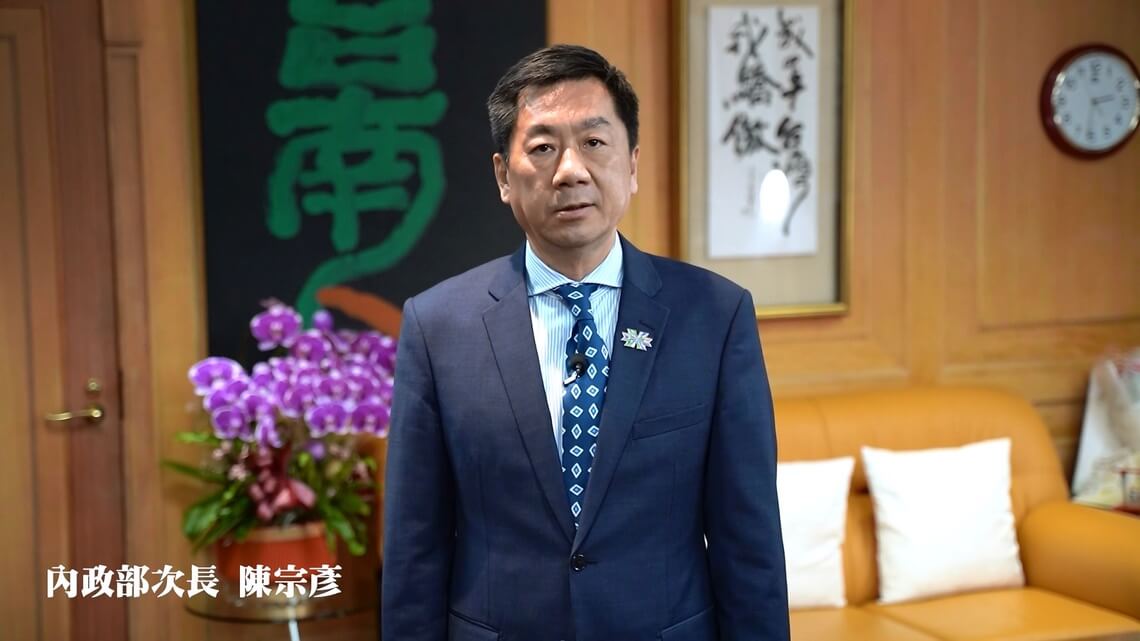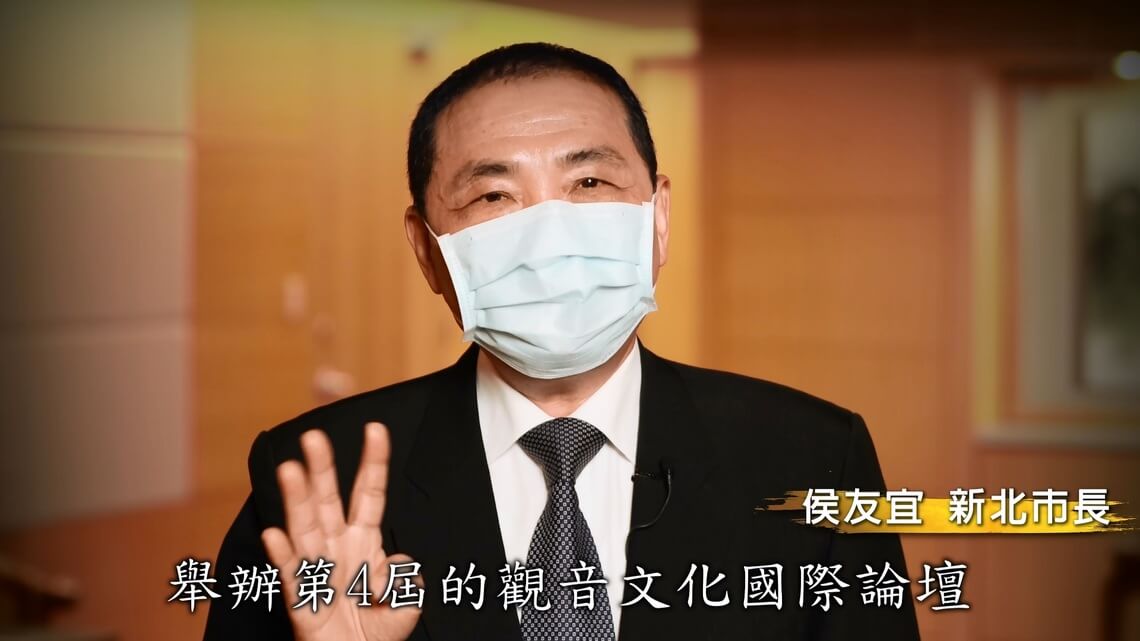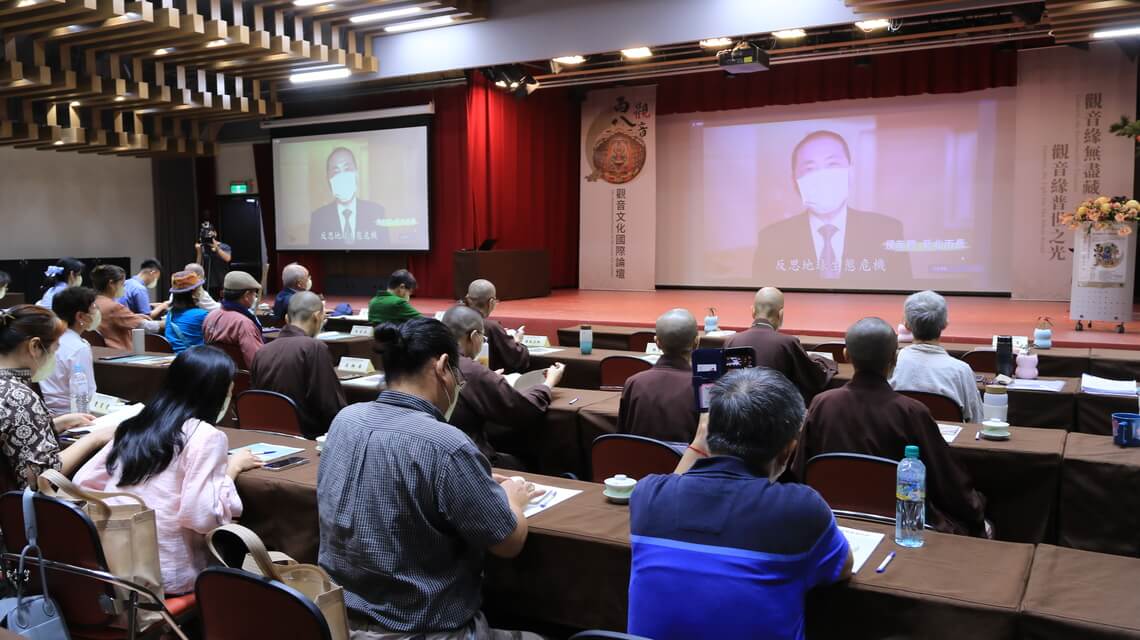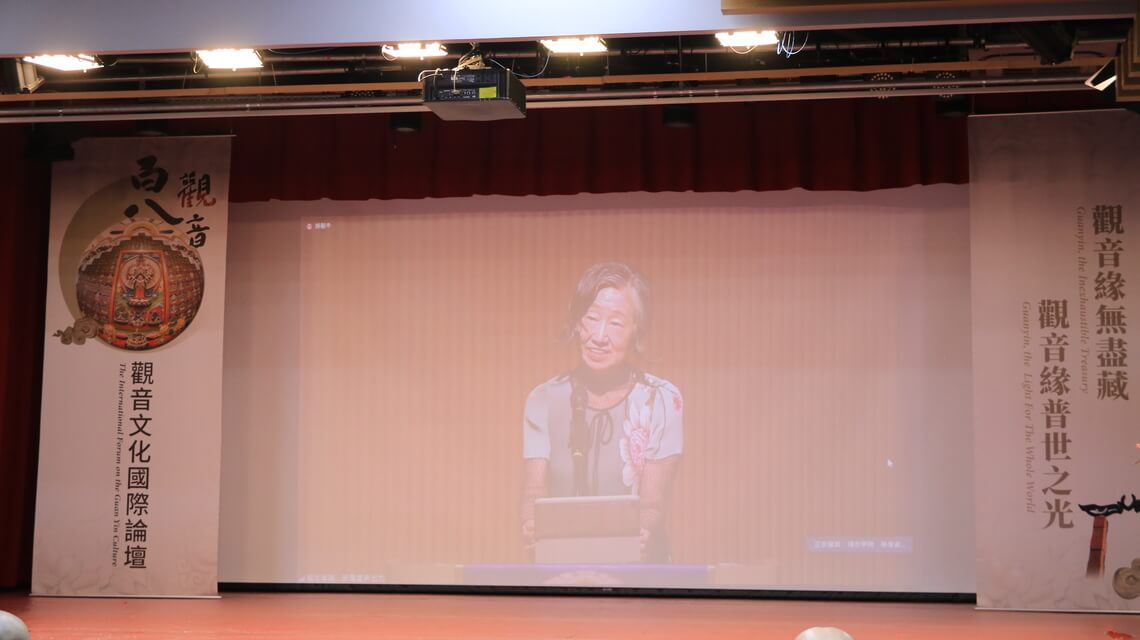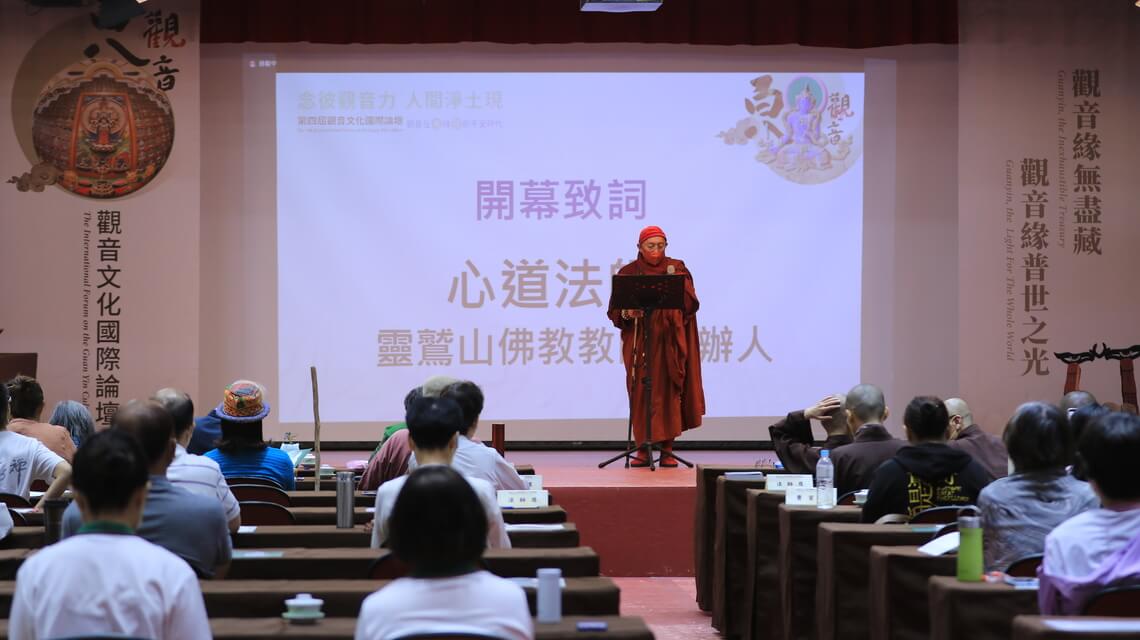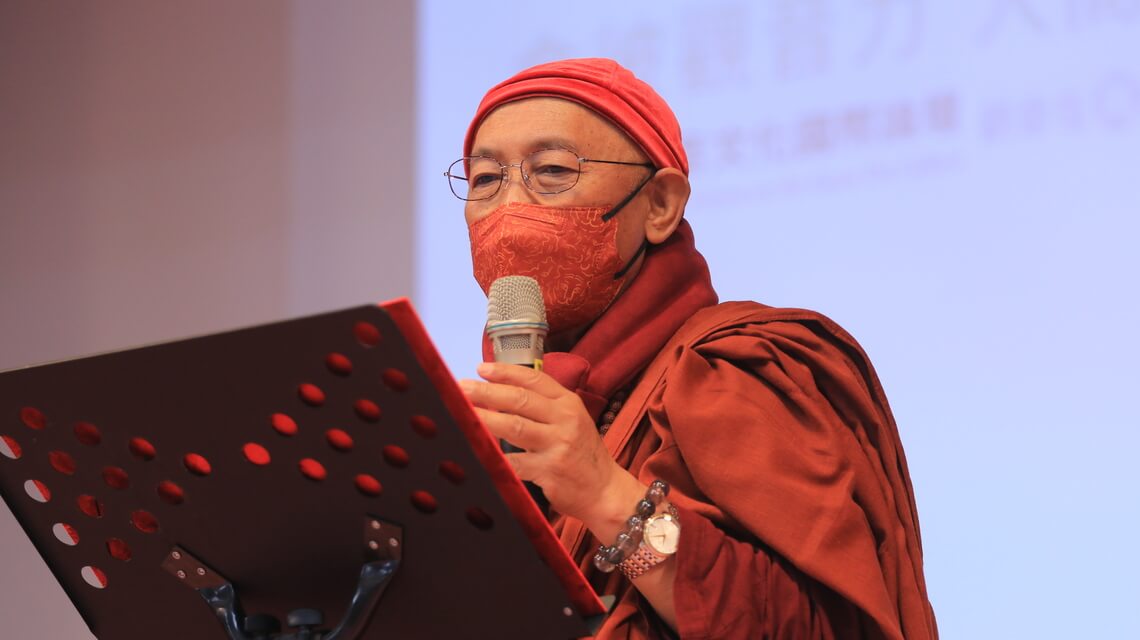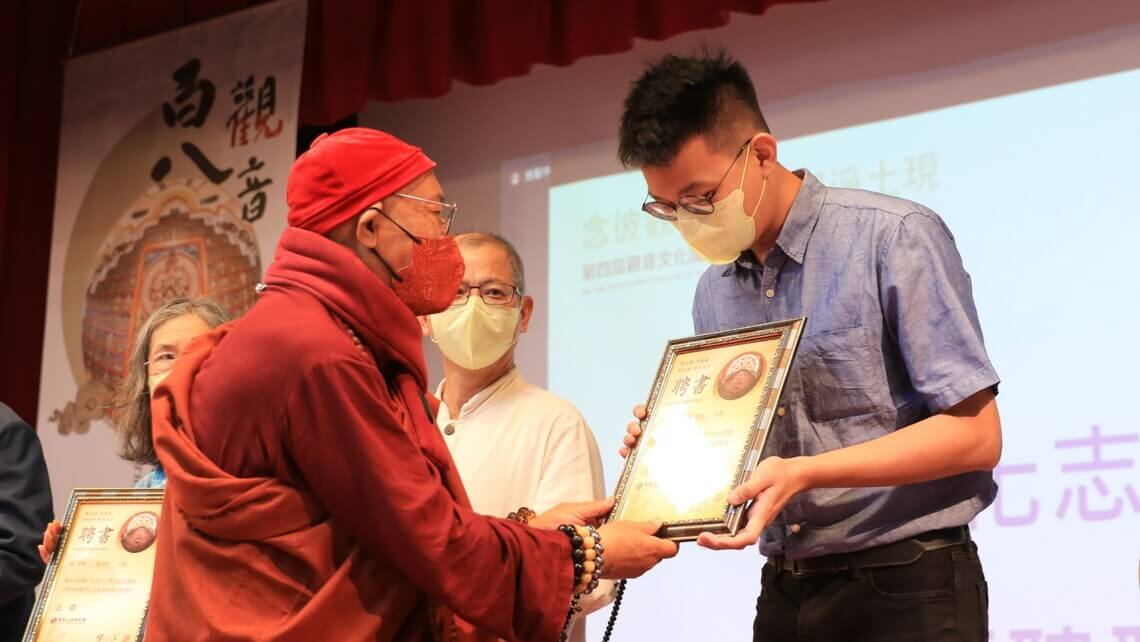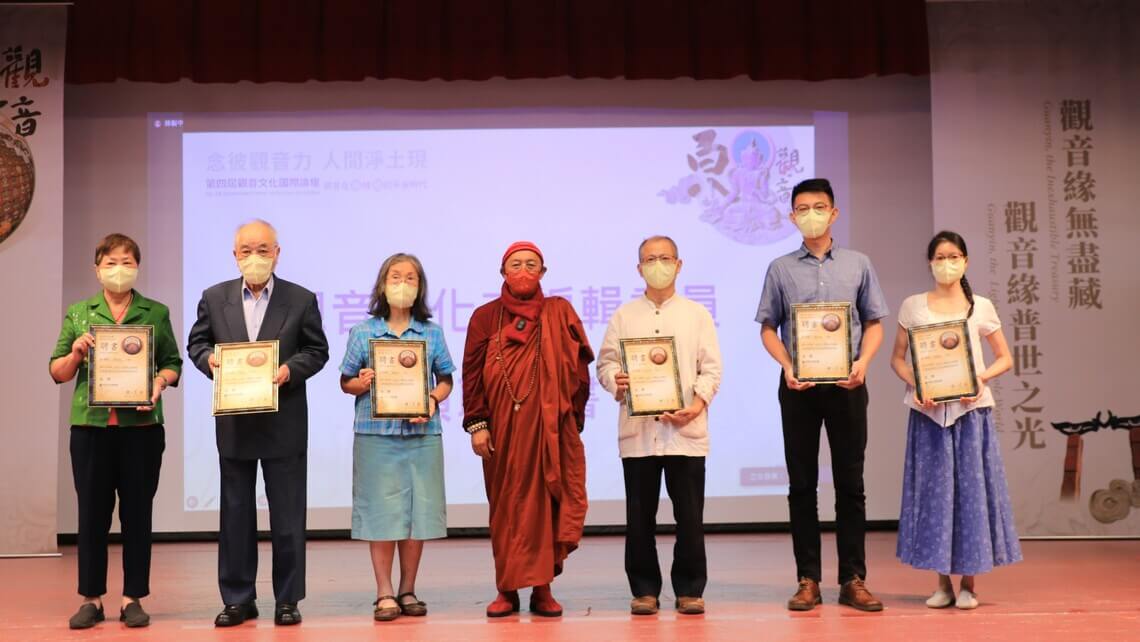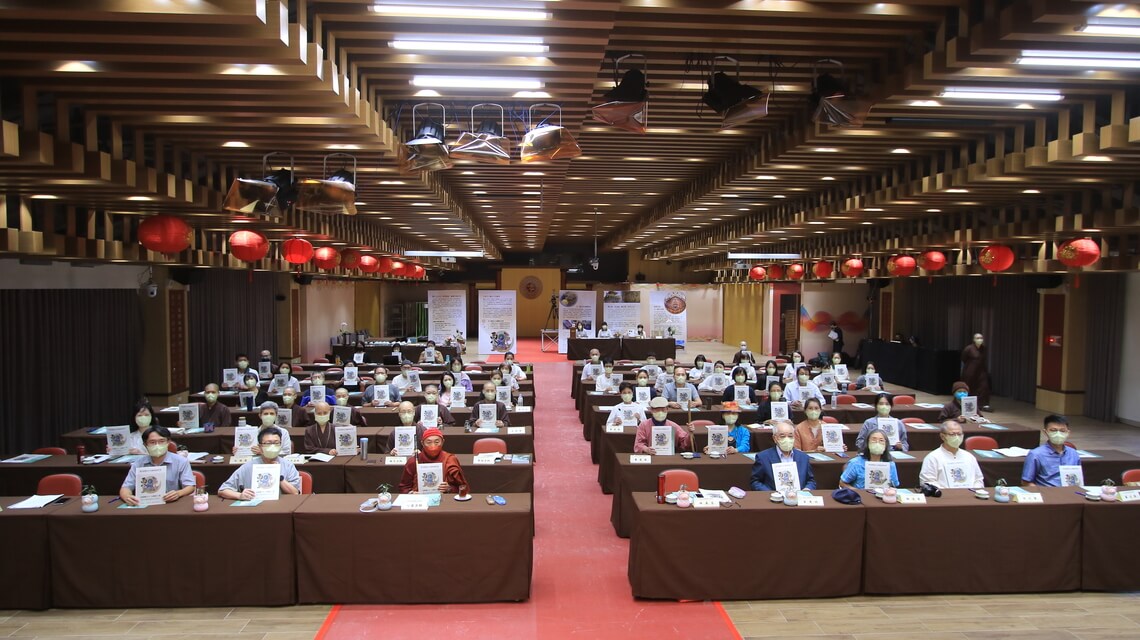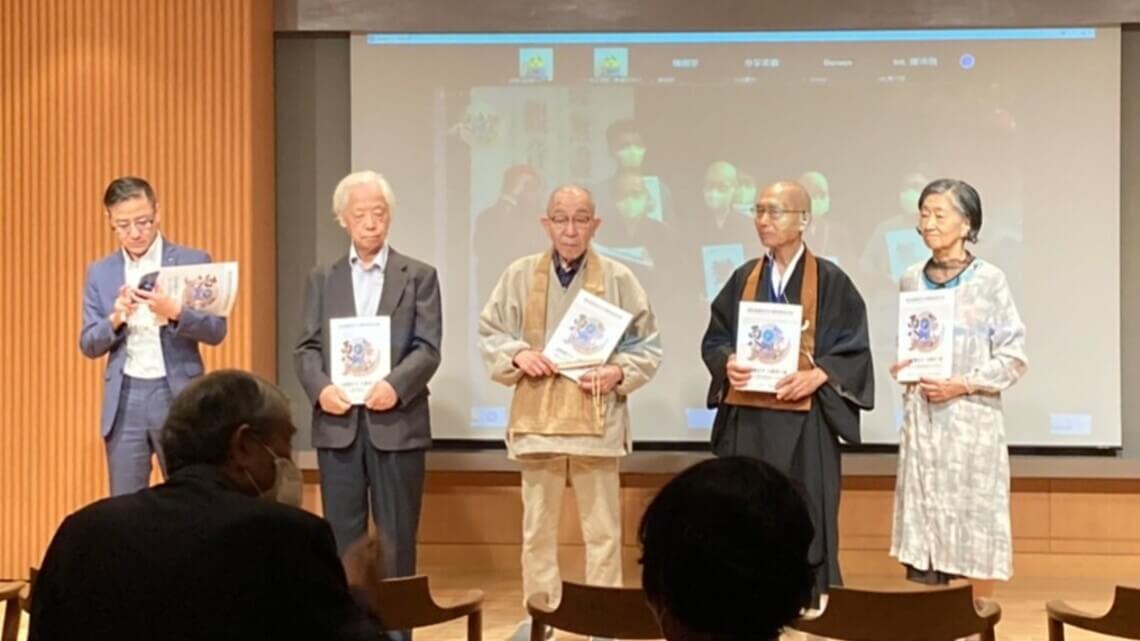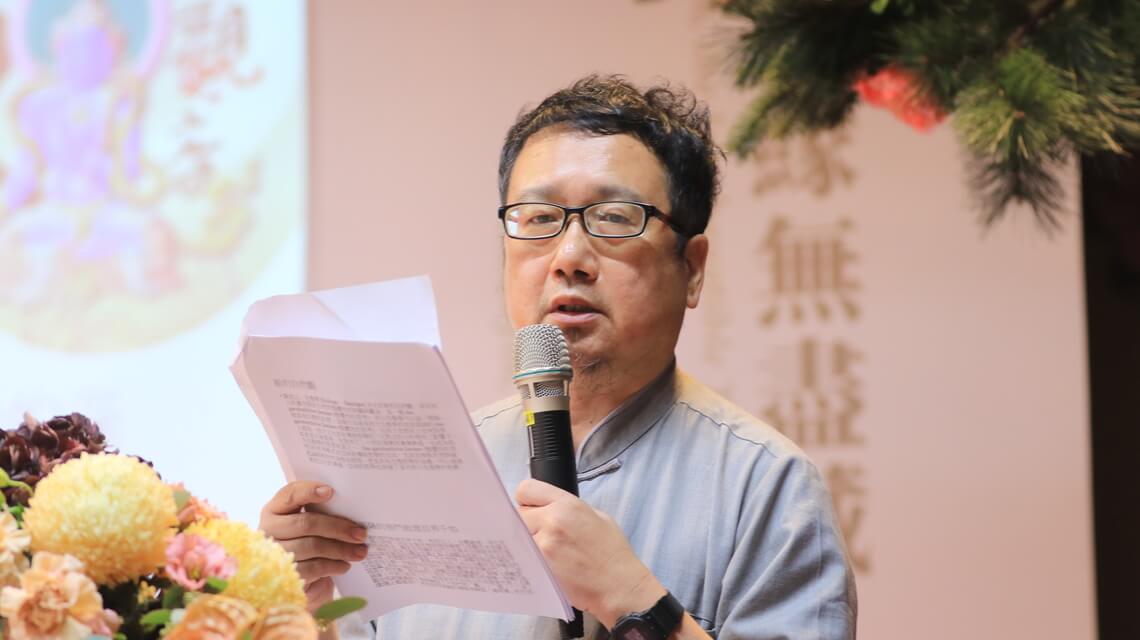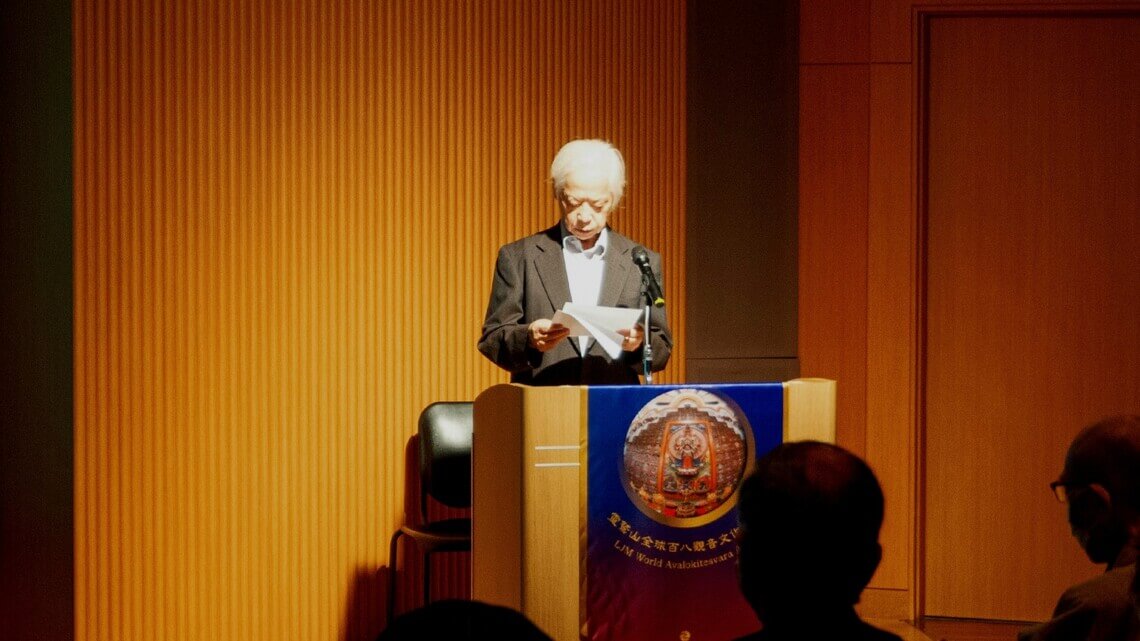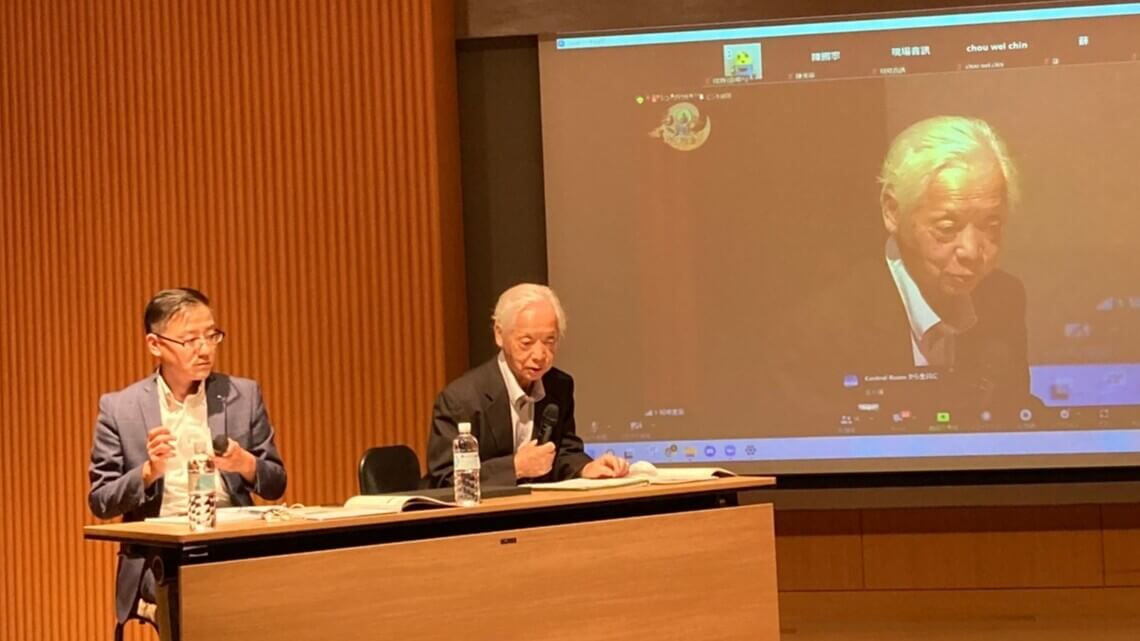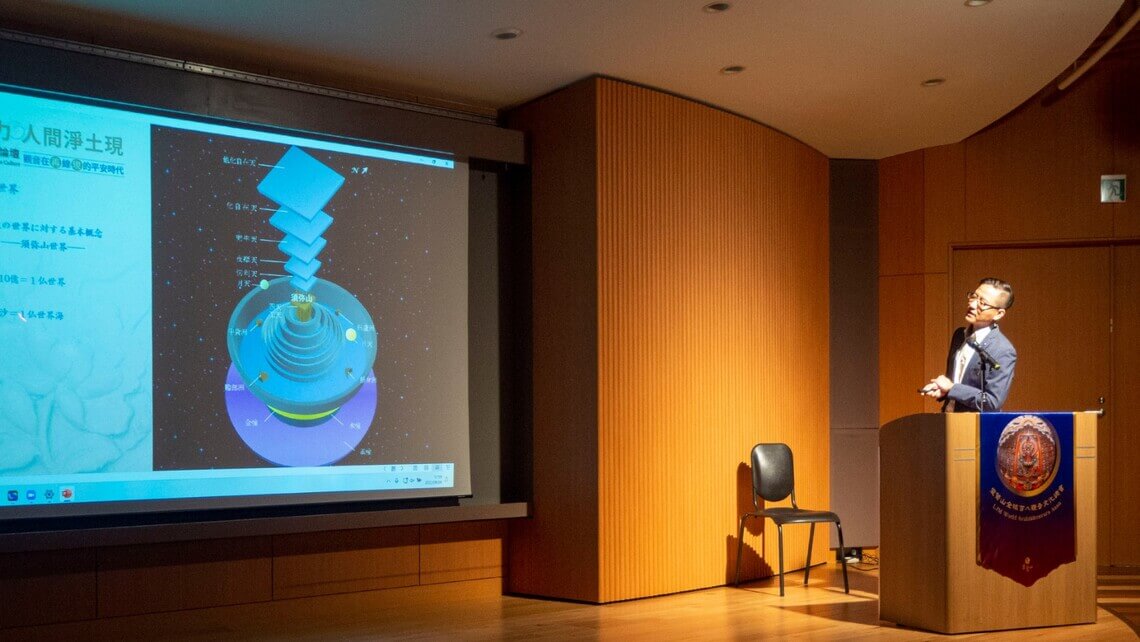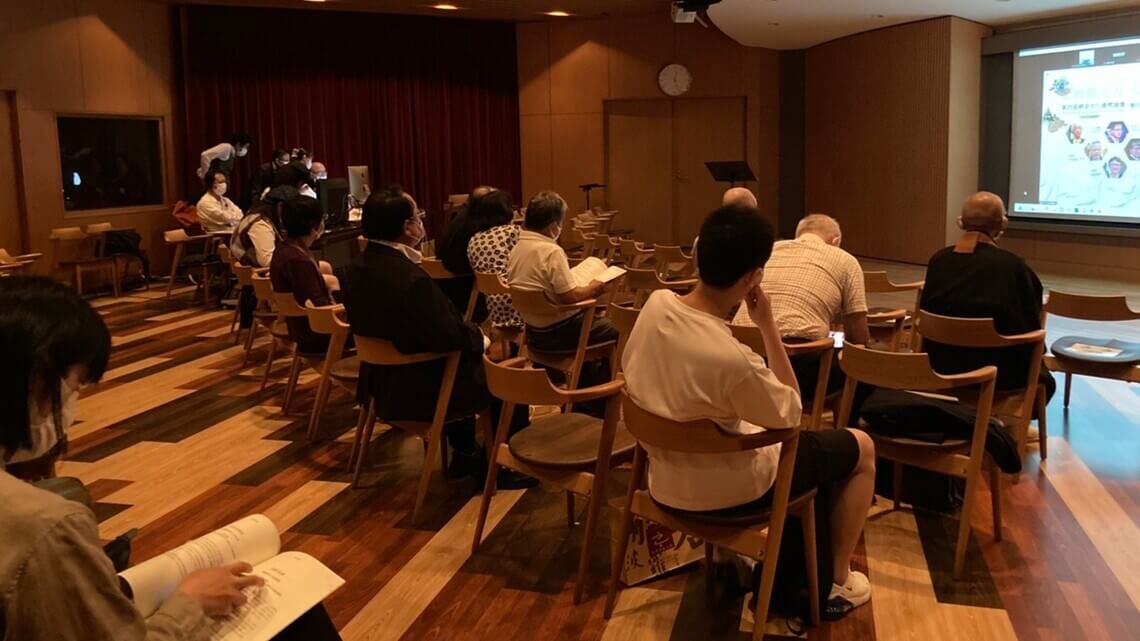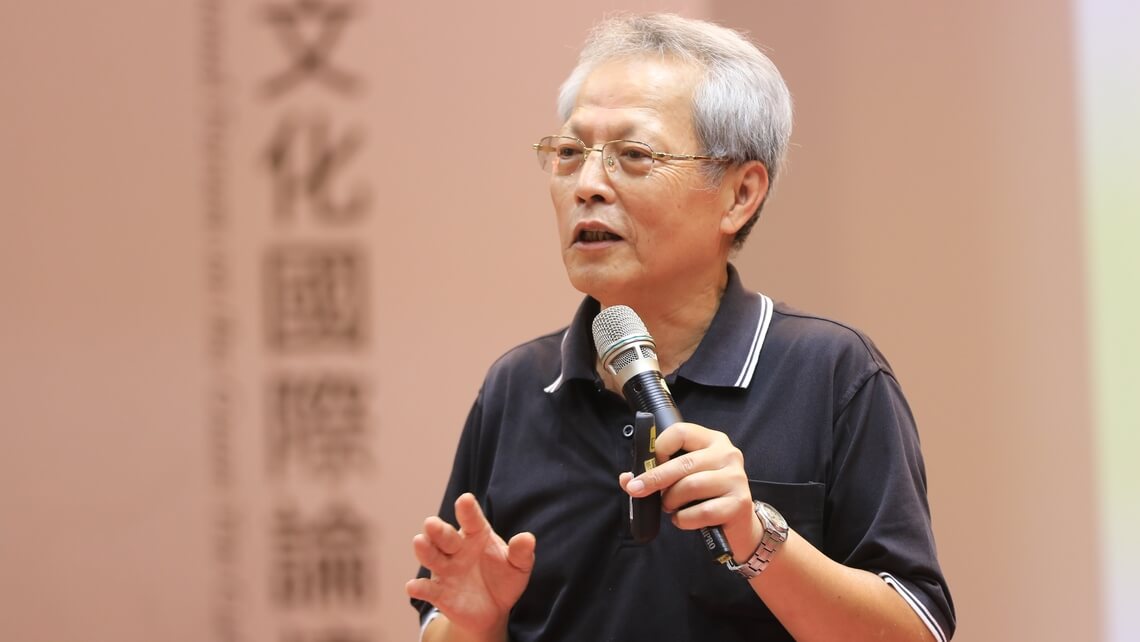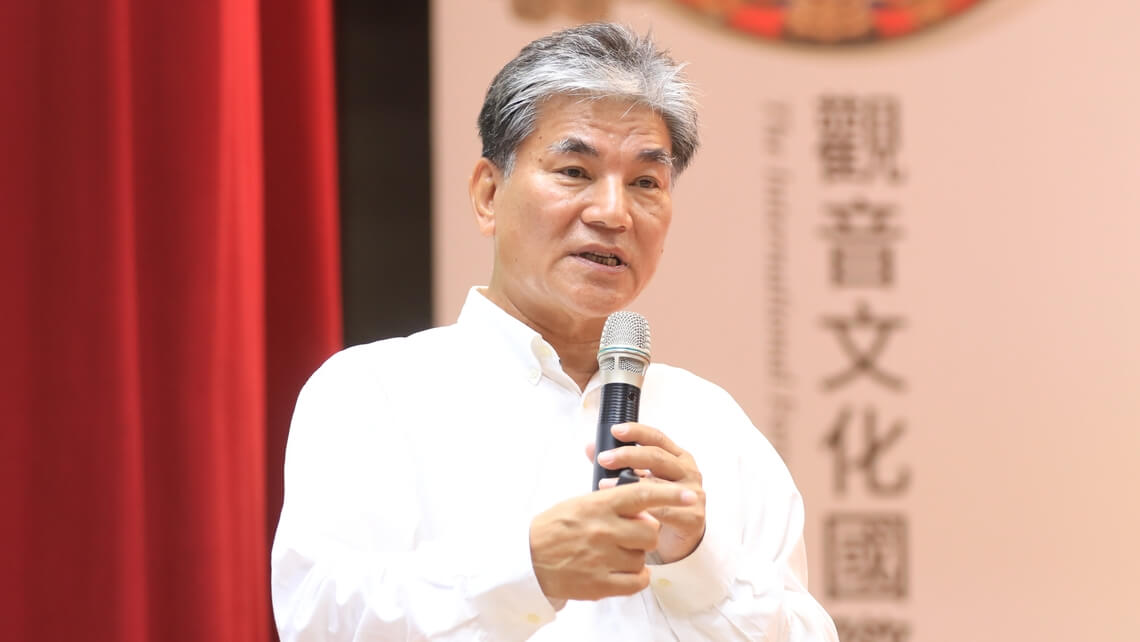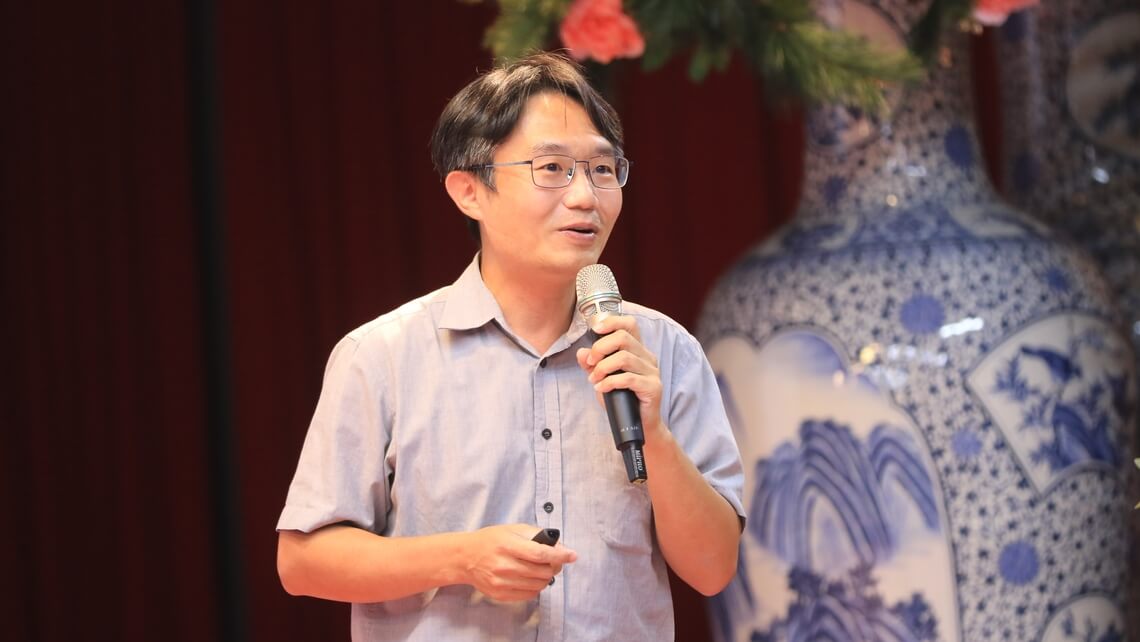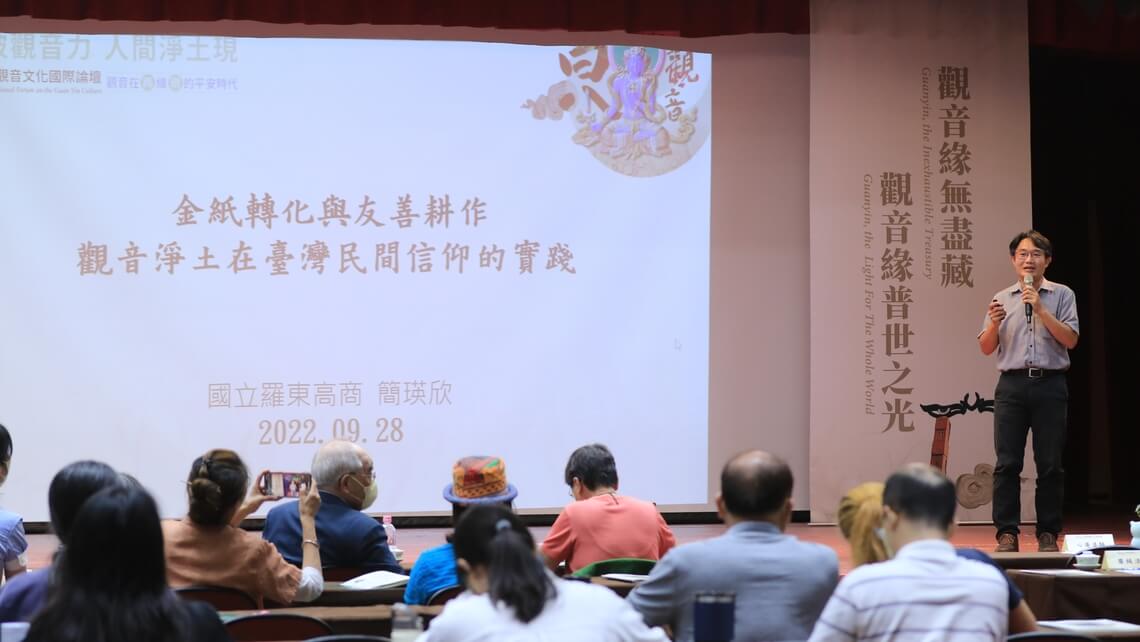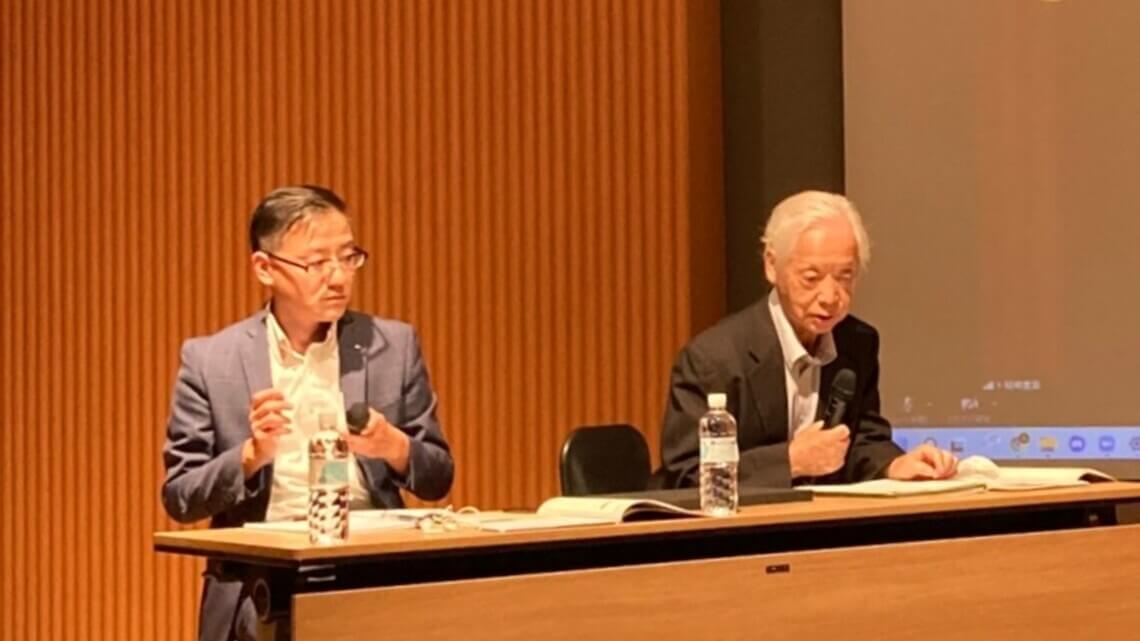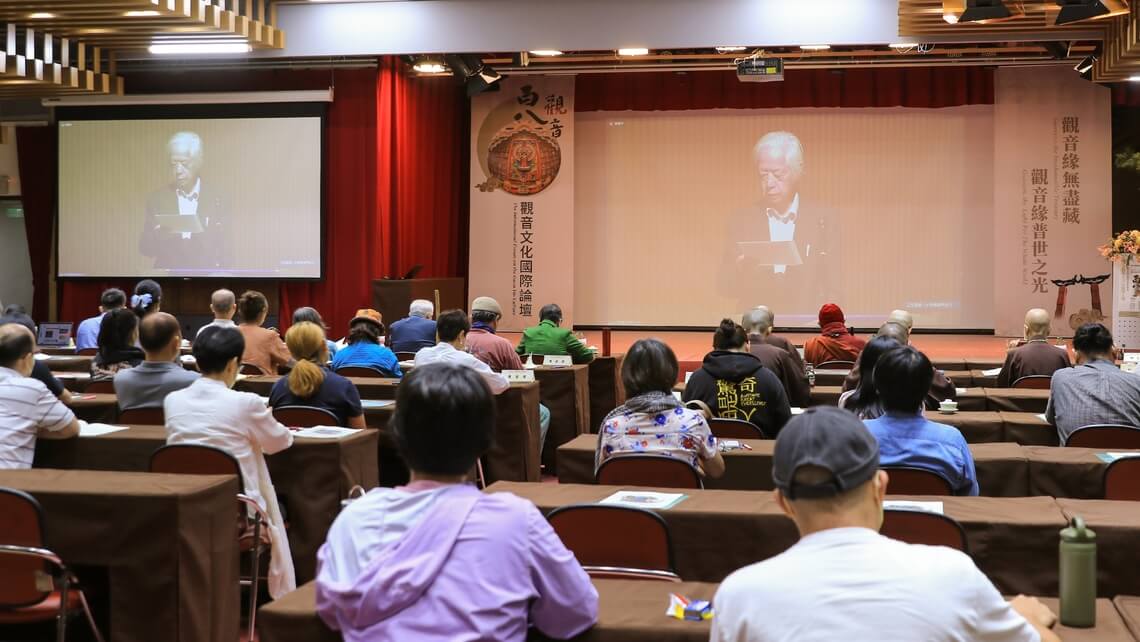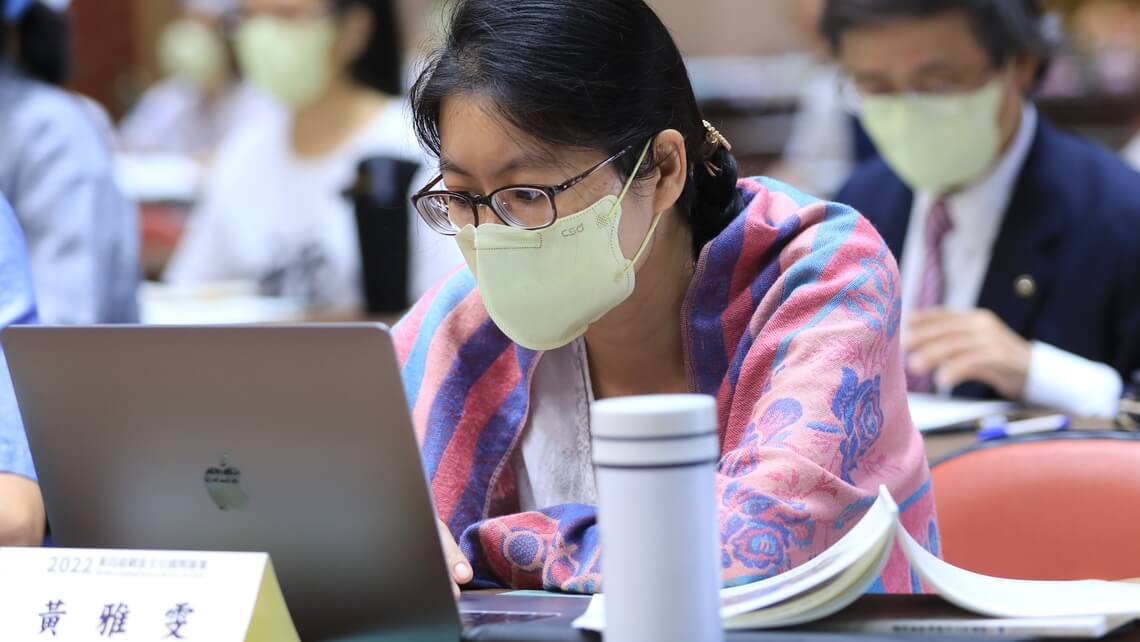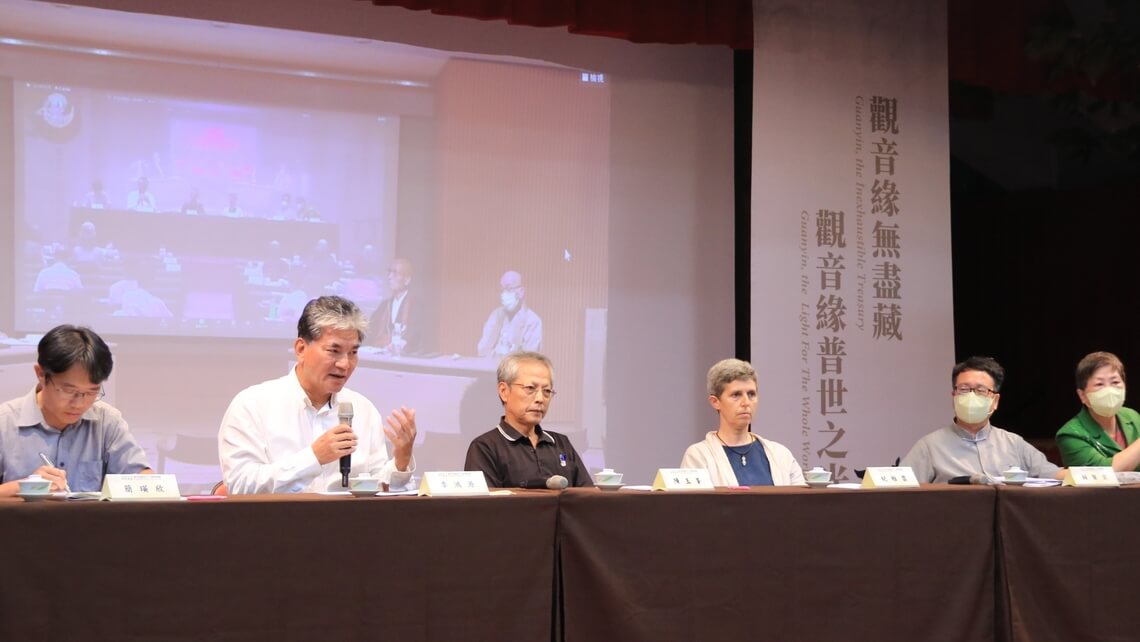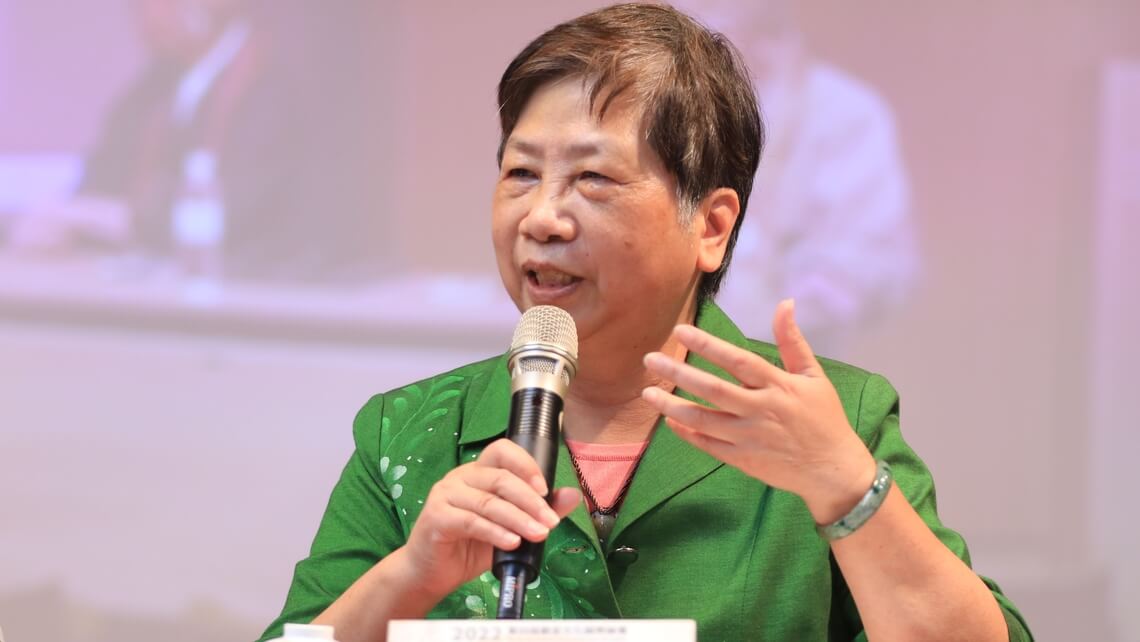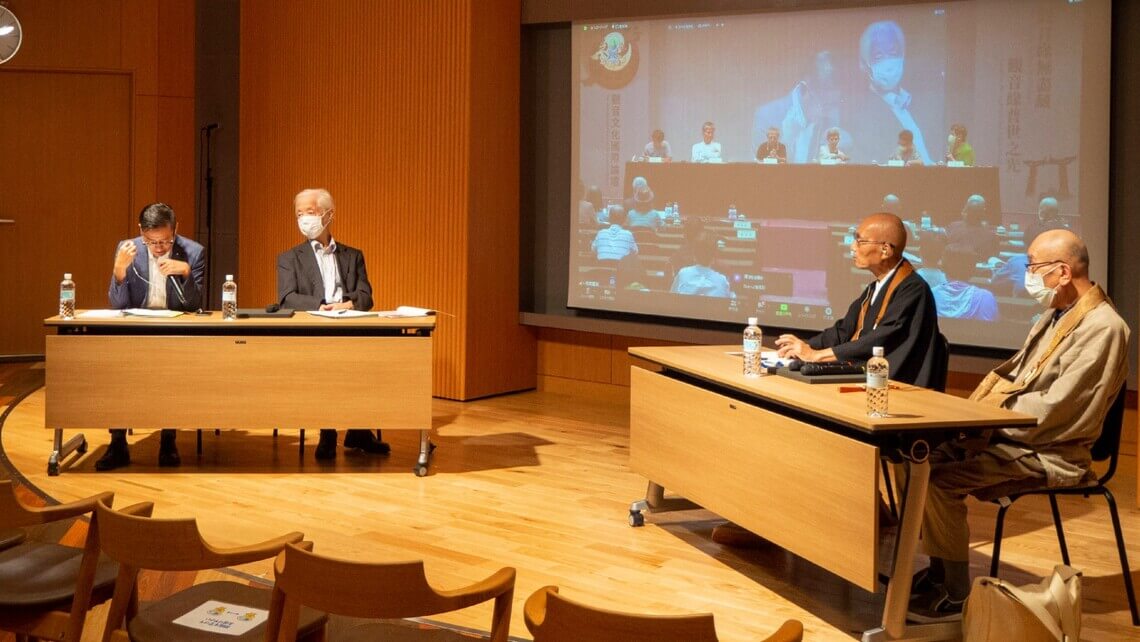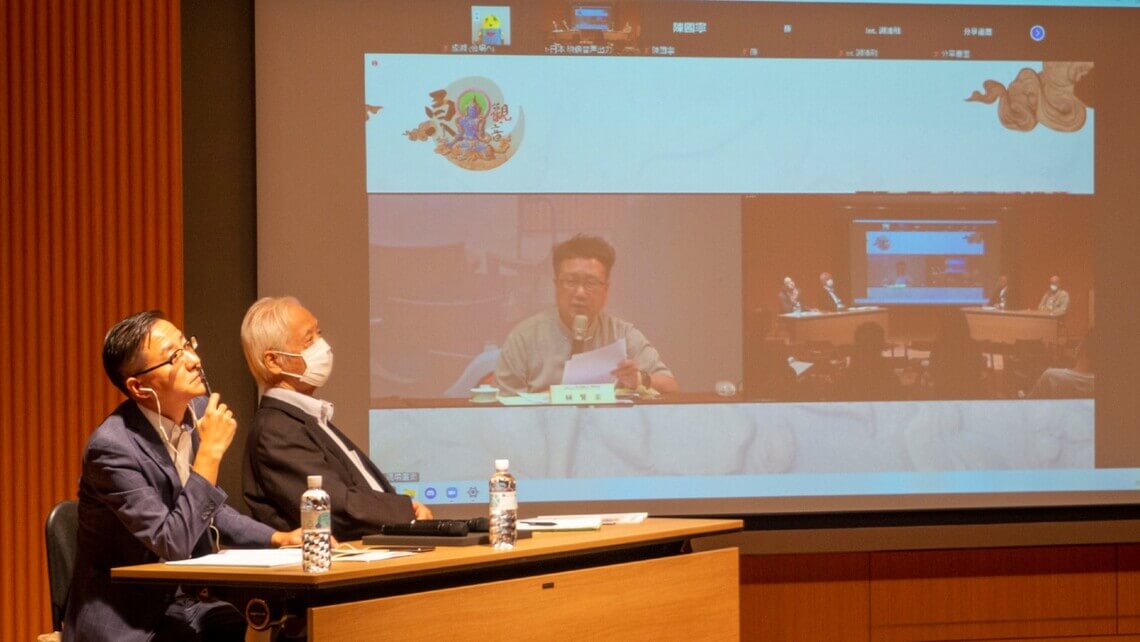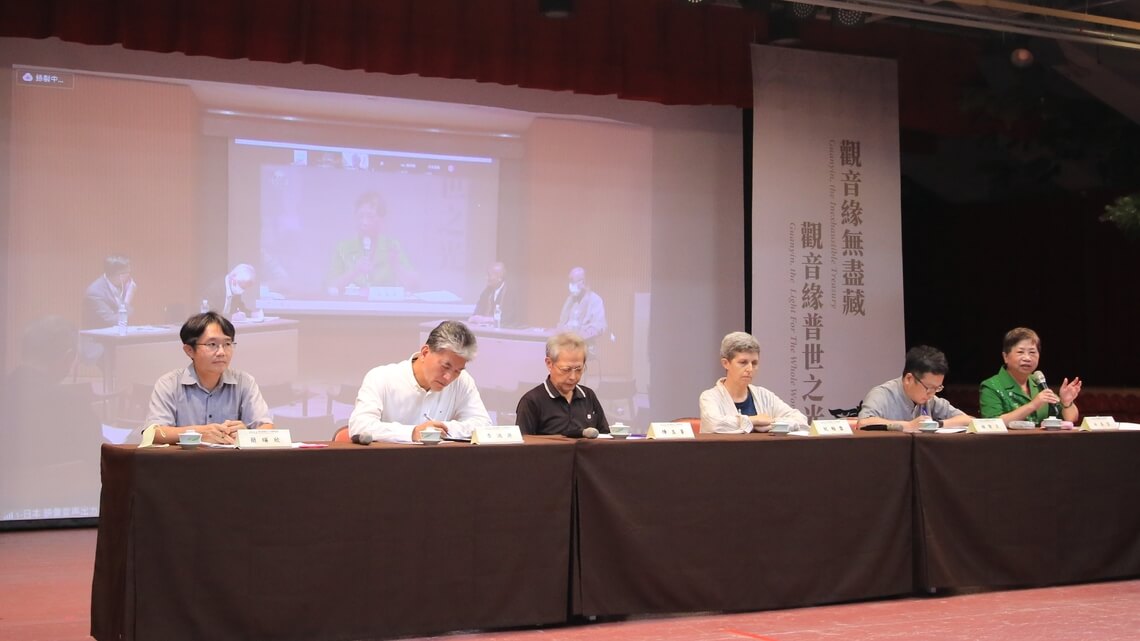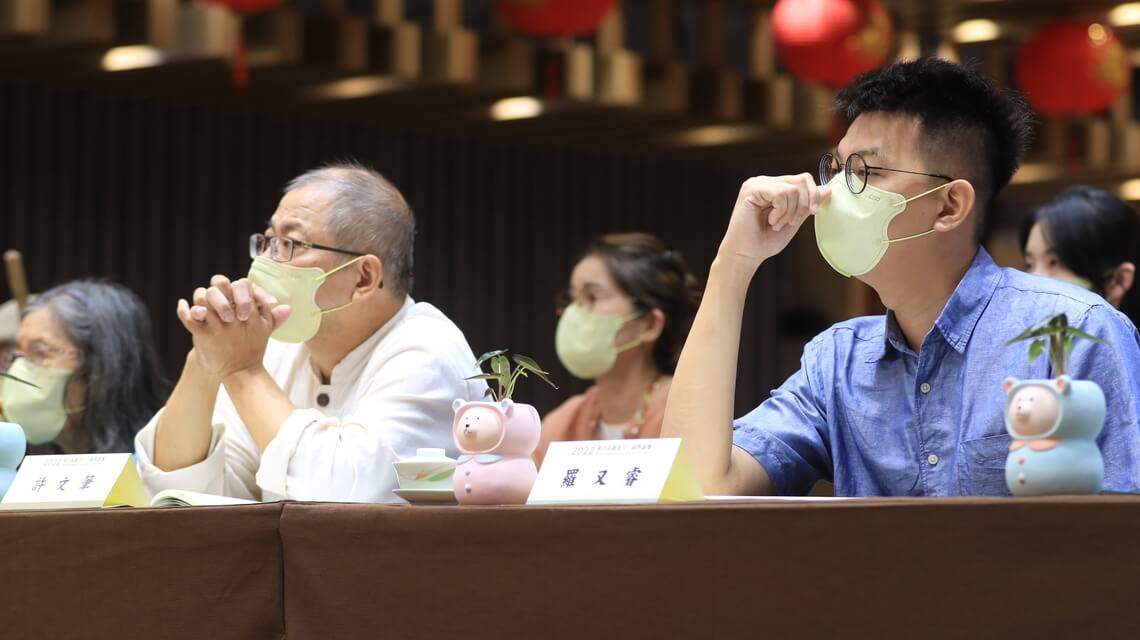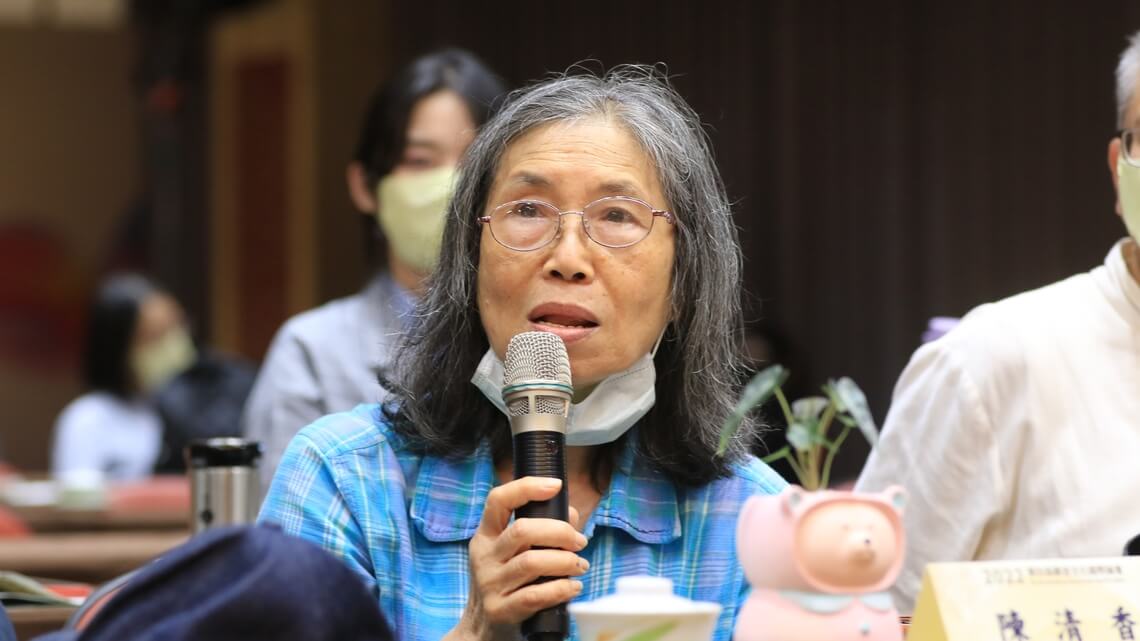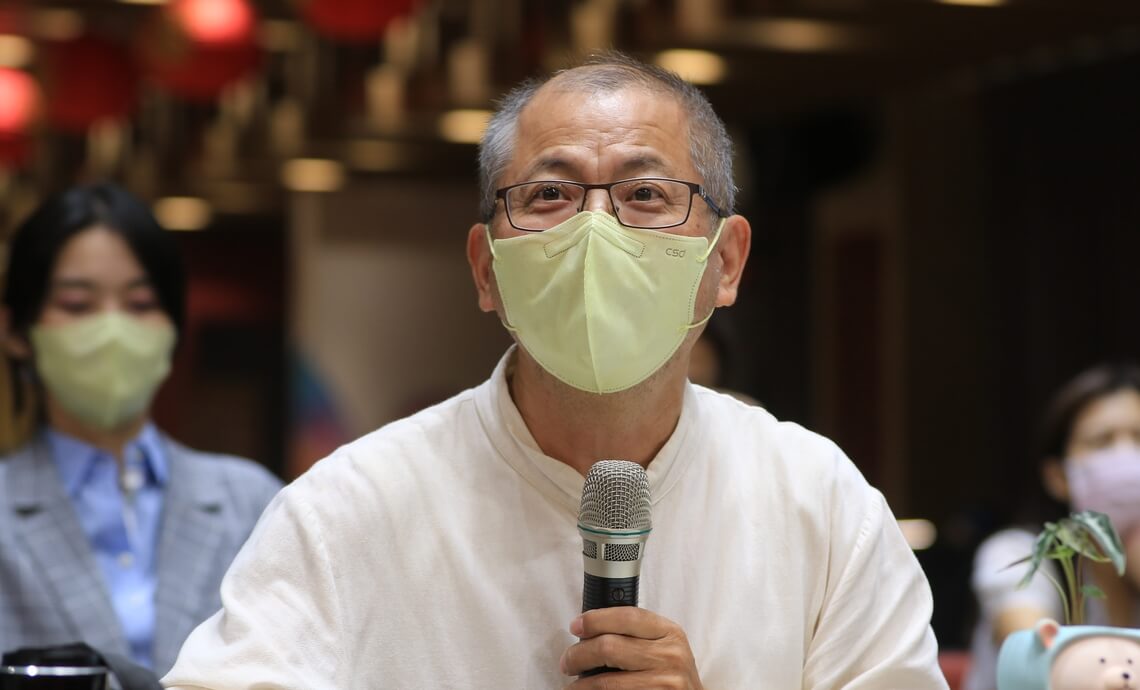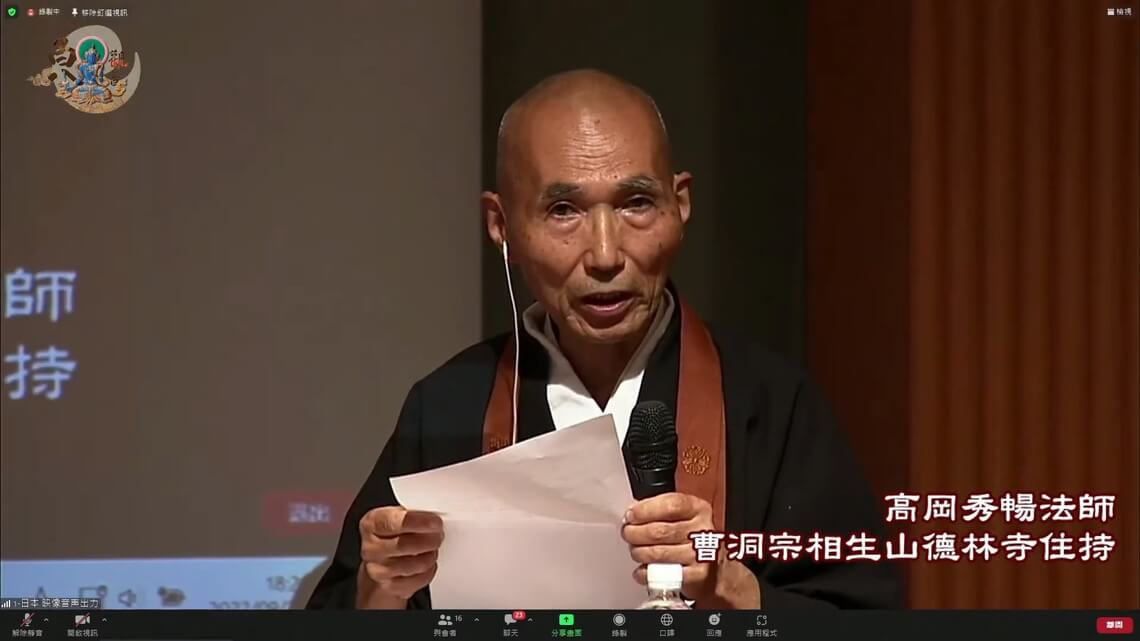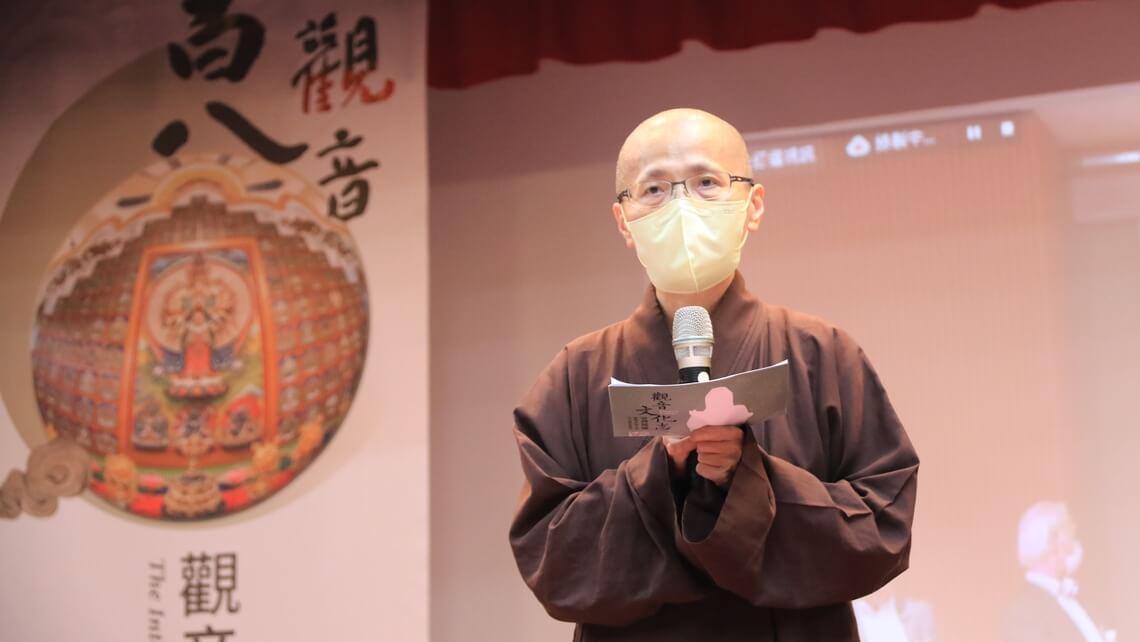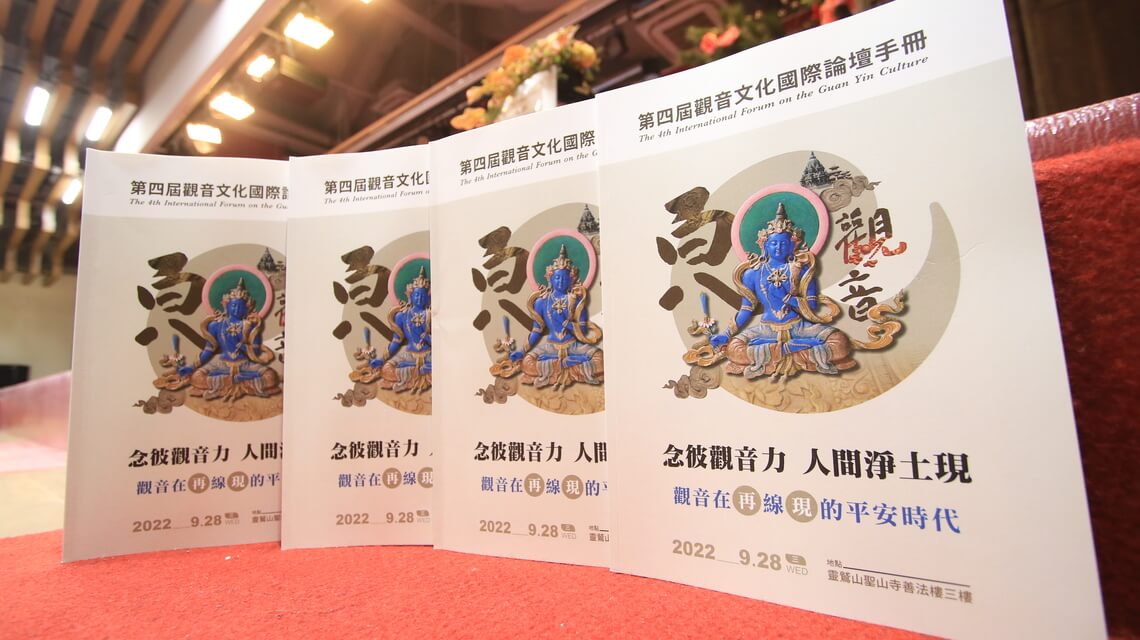Scholars from Taiwan & Japan honor the teachings of Bodhisattva Guanyin to explore solutions to global ecological crises at the fourth International Guanyin Symposium
2022-10-11
Under the banner that ‘By the Power of Mindfulness of Guanyin, a Pure Land Manifests on Earth’, the fourth International Guanyin Symposium held in New Taipei City, Taiwan and in Nagoya, Japan simultaneously on September 28, 2022. Between the two conference sites and via direct and real-time communications online, seven Guanyin-minded scholars and experts explored actionable possibilities of averting the Earth’s ecological crises, making a collective effort in creating ‘an era of peace’ for the post-pandemic New Normal. The organizers are hopeful that all participants who tuned in to the streaming of the event would join in to help spread out the ideology as envoys of Bodhisattva Guanyin.
The fourth International Guanyin Symposium was organized by the LJM Worldwide Association for the 108 Forms of Avalokitesvara and the University for Life & Peace (ULP) Preparatory Office, with the Shyushi Institute in Japan as the presenter. The 2022 theme ran on the tagline that ‘By the Power of Mindfulness of Guanyin, a Pure Land Manifests on Earth – An Era of Peace When Guanyin Reappears Online’. The Guanyin-centric symposium set out to reflect on the Earth’s ecological hazards and aimed at identifying possible solutions by staying the course of the conviction that ‘the Pure Land of Bodhisattva Guanyin is the land where the mind is purified’.
The Opening Ceremony featured a congratulatory message that New Taipei Mayor Hou You-Yi pre-recorded for the event. Mayor Hou expressed appreciation to the organizers for employing as the catalyst the Guanyin belief and culture to bundle up with arts and academics for people of different places to approach and get close to Bodhisattva Guanyin in their distinctive ways. Deputy Minister of Interior Affairs Chen Tsong-Yen, likewise sent best wishes via a pre-recorded video, saying that the latter days of the pandemic would make it increasingly necessary to rely on Bodhisattva Guanyin’s compassion and love for guidance in purifying people’s minds.
Rector Yamamoto Yasuko of the Shyushi Institute in Japan said that it is significant to persist and carry out the international symposium as planned regardless of all daunting challenges – especially at a time when mankind’s excessive focus on economy has led to disrupting the rule of Nature. Education of the mind would mark a turning point for our time, she remarked. It was greatly hoped that the Guanyin faith would make people appreciate the Earth more to embrace a brand-new epoch.
In his opening remark to the symposium, LJM Founding Abbot Dharma Master Hsin Tao highlighted that ‘We are all envoys of Bodhisattva Guanyin, and each of us is a bodhisattva’. He hoped that more people would learn from the Bodhisattva to love all sentient beings. Guanyin’s calling is needed ever so more in the information age, according to the Master, for the compassion to branch out and cover ecology. Everyone will then save our world for survival and sustainability, for the Earth to be spared of disasters and calamities, and for all wars to cease and be stopped. The Master also called for a collective effort to elevate the meritorious virtues of ecology to render the Earth safe, mankind at peace, and an ecological equilibrium as ‘a diversified symbiosis and an interdependent coexistence’.
The 2022 symposium featured seven scholars and experts from Taiwan and Japan, with a total of six papers presented to make the international event rich in content and diversified in thematic treatment. Furthermore, the organizer LJM announced its plans on compiling the Guanyin Culture Almanac of Taiwan with a three-year project of field survey and onsite audit by experts on the subject. Master Hsin Tao presented formal letters of appointment to the editors designated during the lunch break of the Symposium.
Leading off paper presentations in Taipei and Nagoya respectively were Lai Shen-Chon, Professor of Chinese Literature and Director of Research Center of Eastern and Western Philosophy at National Taipei University in Taiwan. Lai expounded the ecological philosophy of Buddhism from a cross-cultural perspective. And Tachikawa Musashi, Professor Emeritus of the National Museum of Ethnology in Japan, and Professor Zhou Xia, a guest researcher at the Buddhist Culture Institute of Doho University in Japan, started off the program in Nagoya by borrowing a juxtaposition between the forms of Buddha and their lands to highlight the Pure Land ideology of the Avatamsaka tradition.
Pia Giammasi, Master of the Pali Language & Buddhist Studies at University of Kelaniya in Sri Lanka, approached her discourse on caring for the world and healing the Earth by demystifying the secret of Bodhisattva Guanyin’s holy name. Chen Yu-Feng, Founder and Chairman of Taiwan Academy of Ecology, offered to go the distance on the topic of ‘The Guanyin Buddha & Taiwan Zen (Chan)’ in an attempt to propose a new viewpoint of a forward-looking ‘Guanyin Ecology’, which endorsed Master Hsin Tao’s propaganda for life of ‘spiritual ecology’.
Professor Lee Hong-Yuan of National Taiwan University’s Department of Civil Engineering approached his profoundly enlightening presentation from the launch pad of Buddhadharma’s universal rules by citing examples from the likes of the LJM University for Life & Peace and other practical tactics as changes for the better in the world’s leading religions to appeal to the mass for a collective effort in bringing alms to the Earth to fulfill religion’s social obligation and ‘ferrying toward yonder the other bank full of wisdom.’ Meanwhile, Chien Yin-Chin, who is currently an instructor of National Lo-Tung Commercial Vocational High School, employed environmental stories of adapting a healthier ritual of burning spirit money, switching over to eco-farming, and ‘more real food, less processed produce’ promotion to both illustrate the strength of the Guanyin Pure Land as embedded in Taiwan’s folklore faith and concrete examples of ecological care thereof in the Guanyin worship.
The panel discussion was themed along the tagline of ‘How the Guanyin Spirit Helps Moderate the Ecological Crises of Our Time’, and respectively moderated by Professor Zhou Xia in Japan and Professor Lin Mei-Rong in Taiwan, who is among editors designated for the compilation of the Guanyin Culture Almanac. Besides the seven paper presenters, invited to join the session for exchange and interaction were Venerable Sucho Takaoka as Abbot of the Tokurinji Temple in Nagoya, and Torayama Yoshihide as Deacon & Treasurer of Nanzenji Temple in Japan, alongside other scholars and fellow editors of the Guanyin Culture Almanac including Chen Ching-Hsiang, Huang Hsiu-Cheng, Hsu Wen-Be, Luo Yo-Ray, and Huang Ya-Wen.
Where there is the will, there is the power. It was on that high note that the closing ceremony of the Symposium proceeded with remarks by Master Guang Chun of the Worldwide Association for the 108 Forms of Lokitesvara’s Steering Committee in Taiwan, and Venerable Takaoka as an official advisor to the Symposium for the Japanese side, in looking forward to future symposia in post-pandemic years optimistically, so as to share on Bodhisattva Guanyin’s Great Compassion that help return us to our original Buddhahood for awakening. Both sides promised to meet up again next year at the fifth International Guanyin Symposium to actively participate in pre-announced programs including pilgrimage to Guanyin temples, screening of Guanyin-themed films, and other Guanyin-centric cultural and art events to enjoy the closest affinity possible to Bodhisattva Avalokitesvara as his envoys.
(Courtesy of LJM)


